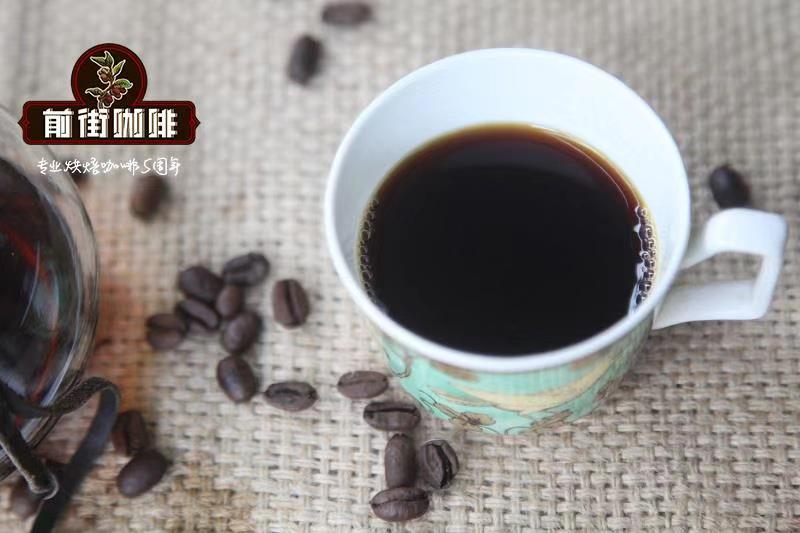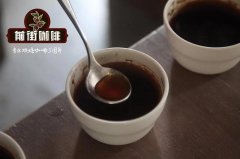Geographical planting environment of coffee in Kenya how is the flavor and taste of African Kenyan coffee beans

Professional coffee knowledge exchange more coffee bean information please follow the coffee workshop (Wechat official account cafe_style)
Qianjie-A brief introduction to the geography and representative coffee beans of Kenya coffee
Kenya is located in eastern Africa, the equator runs through the central part of the country, and the Great Rift Valley stretches north and south. It is bordered by Somalia to the east, Tanzania to the south, Uganda to the west, Ethiopia and Sudan to the north, and the Indian Ocean to the southeast. Although Kenya and Ethiopia, the birthplace of coffee, are adjacent to each other, the history of coffee cultivation in Kenya is only over 100 years, more than 1000 years later than Ethiopia.
When coffee was first introduced to Kenya, Kenya was a British colonial country. In order to earn foreign exchange, the British colonial government widely promoted the cultivation of coffee in Kenya and shipped it to London for export after the beans were harvested. It was not until 1933, when Kenya passed a coffee law and established a coffee committee, that coffee sales were transferred back to Kenya.
Kenyan coffee is mainly grown in volcanic areas around 1600-2100 meters above sea level from the capital Nairobi to the mountains of Kenya. This height is suitable for the development of coffee bean flavor, because the mountain temperature is lower, the growth is slow, the aroma components of coffee beans have been fully developed, the sour taste is more obvious, and the texture is harder. This fertile moon-shaped coffee area is the main producing area of Kenyan boutique beans, such as Nyeri and Ruiru in the middle of the country.
Gourmet Kenyan beans are generally produced on small farms, and each small farmer can only produce about 20 to 70 bags per season. Because they are unable to invest in expensive washing treatment plants, hundreds or thousands of households are gathered together to set up cooperative farms, and the government pays for the construction of washing treatment plants. These small farms are extremely strict in the handling of raw beans, and the whole process, supervised by the official Coffee Administration, ensures the quality of Kenyan coffee, and its famous double-layer washing method has always been an example of bean-producing countries, so although the production of Kenyan coffee is not high, it has always been an important choice for the world's top coffee buyers.
Kenya is a well-known producer based on the size of coffee beans. Usually divided into nine grades, according to the bean type, there are PB, that is, round beans, accounting for about 10% of the total output, in addition to E (elephant beans), AA, AB, C, T, TT, MH, ML according to size. Through unremitting efforts, Scott Laboratory (Scott Laboratory), a Kenyan agricultural research institution, has selected two excellent hybrids, SL-28 and SL-34, subverting the long-standing prejudice that artificial breeding has no excellent natural varieties. SL-28 and SL-34 help Kenyan coffee to form its own unique flavor characteristics and establish a perfect reputation in the coffee industry.
AA Plus (AA+): AA grade with excellent cup quality (flavor, taste)
AA: particle size (Screen Size) 17 Murray 18 size
AB: particle size (Screen Size) 15 Murray 16, accounting for the majority of production
Gift of knowledge: Kenyan coffee beans are basically treated by washing. Generally speaking, the coffee after this treatment has the purest flavor, the lowest miscellaneous flavor, and the best fruity and sour taste. What is more commendable is that Kenya has a more special treatment: "double washing", which refers to coffee beans being washed twice and fermented twice.
END
Important Notice :
前街咖啡 FrontStreet Coffee has moved to new addredd:
FrontStreet Coffee Address: 315,Donghua East Road,GuangZhou
Tel:020 38364473
- Prev

Brief introduction to the producing areas of Kenyan Coffee introduction to the flavor of Kenyan Nieri coffee
Professional coffee knowledge exchange more coffee bean information please follow the coffee workshop (Wechat official account cafe_style) front street-Kenya coffee producing area, Neri coffee flavor sharing Kenya coffee flavor rich: strong aroma, obvious acidity, especially Kenya coffee after the harvest, must be established by the government of Kenya Coffee Authority (Coffee Board of Kenya, CBK) system
- Next

African Kenyan Coffee AA grading system Kenyan Coffee producing area Flavor
Professional coffee knowledge exchange more coffee bean information please follow the coffee workshop (Wechat official account cafe_style) front street-Kenya coffee grading system, a brief introduction to the development history of coffee has been recorded as early as the 8th century AD, coffee shops were also popular in the 17th century, while its neighboring countries
Related
- Beginners will see the "Coffee pull flower" guide!
- What is the difference between ice blog purified milk and ordinary milk coffee?
- Why is the Philippines the largest producer of crops in Liberia?
- For coffee extraction, should the fine powder be retained?
- How does extracted espresso fill pressed powder? How much strength does it take to press the powder?
- How to make jasmine cold extract coffee? Is the jasmine + latte good?
- Will this little toy really make the coffee taste better? How does Lily Drip affect coffee extraction?
- Will the action of slapping the filter cup also affect coffee extraction?
- What's the difference between powder-to-water ratio and powder-to-liquid ratio?
- What is the Ethiopian local species? What does it have to do with Heirloom native species?

